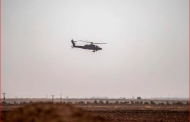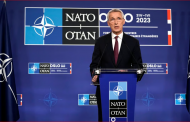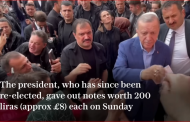On 9 November, the new rulers of Kabul succeeded in getting their Pakistani counterparts, the Tehrik-i-Taliban (TTP) to agree to a truce. This came after the Pakistani intelligence services – the Inter-Services Intelligence (ISI) and the Intelligence Bureau (IB, internal intelligence service) – asked the Afghan Talibans to talk to their Pakistani counterparts about the concerns of Imran Kahn’s spy chiefs about the resurgence in the TTP’s activities in Pakistan.
Multiple alliances
With more than 30,000 members and hundreds of sleeper cells in the Peshawar and Karachi regions and the poor, separatist province of Balochistan, the TTP has been galvanised by the victory of its Afghan counterpart, even though the latter considers the Pakistani authorities to be its allies. As a result, the Pakistani Talibans have been strengthening their own alliances. They have consolidated their existing links with Islamic State in Khorasan Province and reinforced their alliances with other local movements, which are kept under close surveillance by the ISI and the IB. Among these are Tehrik-e-Labaïk yah Rasoul Allah Pakistan (TLY) and Lashkar-e-Taiba, headed by Hafiz Mohammad Saïd and with an operating arm that has taken part in anti-Indian attacks. Drawing on these alliances, Noor Wali Mehsud, who has been leader of the TTP since 2018, is believed to be fomenting attacks and training kamikazes.
Agreement reached in Kabul
Faced with this growth in TTP activity, Pakistan’s security high command had intense internal discussions about the attitude it should take before finally deciding to adopt a soft approach involving negotiations. Newly appointed ISI chief Nadeem Anjum IB director general Aftab Sultan and chief of army staff Qamar Javed Bajwa decided to ask Taliban intelligence chief Abdul Haqq Wathiq and his chief of army staff Qari Fasiheddin to organise talks. These took place in the suburbs of Kabul and were finally concluded on 9 November.
Since 6 November, the government in Islamabad has also been trying to get the far-right Tehrik-e-Labaïk Pakistan group, which has traditionally been hostile to France and has organised a number of noisy demonstrations, back into the Pakistani political arena. The Pakistani army, which has been playing a leading role in the affair, has asked the ISI and IB to infiltrate the movement so as to try to stir up its internal dissensions.








































admin in: How the Muslim Brotherhood betrayed Saudi Arabia?
Great article with insight ...
https://www.viagrapascherfr.com/achat-sildenafil-pfizer-tarif/ in: Cross-region cooperation between anti-terrorism agencies needed
Hello there, just became aware of your blog through Google, and found ...